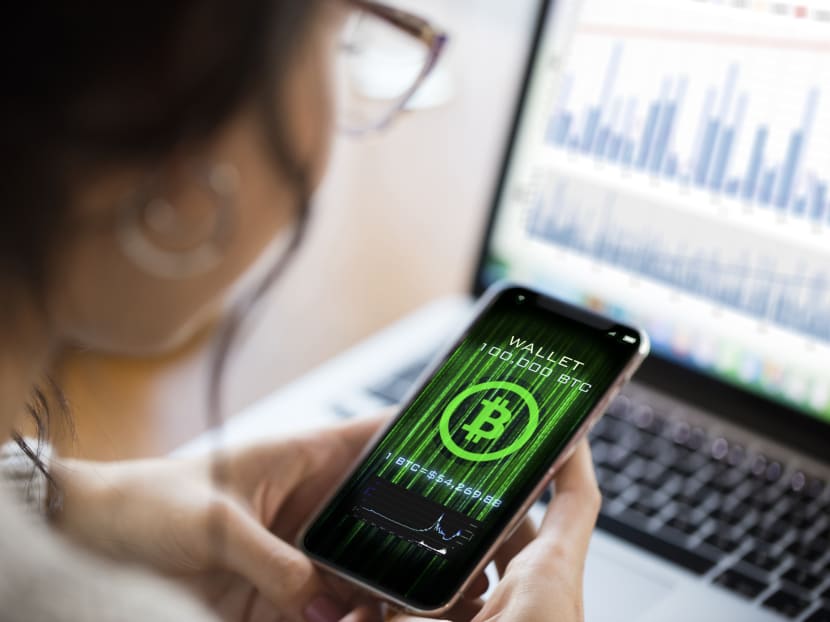Balancing fintech innovation and regulation in the crypto space
Cryptocurrencies have come under the regulatory spotlight as they gain traction among investors. Money Mind looks at the balance between fintech innovation and regulation.

File photo. (Photo: iStock/guvendemir)
SINGAPORE: With more than US$2 trillion in market value and an estimated 200 million users around the world, cryptocurrencies have come under the regulatory spotlight as they gain traction among investors.
In Singapore, digital payment tokens have been issued to three entities, and more could be on the way.
Digital payment token service includes the buying or selling of digital payment tokens, or providing a platform to allow people to exchange such tokens in Singapore.
With the industry still evolving, experts say there are certain challenges, including how regulations are set for something that is decentralised by design.
According to digital currency exchanges such as Luno, banning crypto outright would mean shutting the door on the underlying blockchain technology and its benefits.
“Technology in itself is not good or bad ... The important thing is to have regulation that pretty much legalises the framework and can eliminate the bad actors and does not allow them to operate, which is what you see the likes of Singapore doing,” said Mr Vijay Ayyar, Luno’s vice-president for Asia Pacific and Global Expansion.
Outright bans could also push investors to look for alternative options.
"More people will just find ways to still put their money into cryptocurrency ... Instead of fostering growth, facilitating growth, you will only push people to go towards circumvention of the rules," said Mr Airell Ang, legal associate at Magna Law Corporation.
Mr Ang said that a flexible approach allows for both industry players and regulators to grow and learn and facilitate the growth of this "exciting industry".
"Take a look at the United States’ hardline stance against cryptocurrency, where they view it as a form of security and the application of their existing securities laws on it. What this essentially means is that retail investors have to report their realised gains and losses, and the failure to do so will invite scrutiny from the authorities. This rigid and blanket treatment of cryptocurrencies will deter financial development and innovation in such novel areas of technology,” said Mr Ang.
Countries will also have to toe a fine line between regulation and innovation. According to Mr Ang, being able to strike this balance can be beneficial.
“This is precisely why Singapore is such an attractive jurisdiction because apart from being a good regulator where they rap the knuckles of non-compliant entities, they also recognise that too much control over the players will stifle innovation,” he said.
The Monetary Authority of Singapore is among regulators that have taken action against crypto exchange Binance. It has ordered Binance to stop providing payment services to residents in Singapore.
Binance is facing a regulatory backlash globally over consumer protection issues and its compliance with anti-money laundering rules. The global site, Binance.com, is on the MAS investor alert list.
More recently, Binance Asia Services, the operator of Binance.sg, withdrew its application to operate a regulated cryptocurrency exchange in the country.
Binance.sg will wind down operations and close by Feb 13. Users of the platform must close all open positions and withdraw their Singapore dollar and cryptocurrency assets by that date.
Singapore's regulations are geared primarily towards protection against money laundering and terrorism financing. Digital payment tokens are not subject to consumer protection measures.
"If the regulator is able to make sure that the exchanges that operate are licensed, according to a set of standards, that takes care of pretty much any kind of major issue you would think of," said Mr Ayyar.
To date, three players have received licences to offer digital payment token services under the Payment Services Act.
They include DBS Vickers, Australian cryptocurrency exchange Independent Reserve, and fintech firm Fomo Pay.
DBS Vickers is a member of the DBS Digital Exchange, the only player backed by a traditional financial institution.
“Our aim was to create a transparent, secure, and reliable platform that serves the entire digital asset value chain, from deal origination to tokenisation, listing, trading and custody, and all this is done within a trusted and regulated franchise," said Ms Eng-Kwok Seat Moey, chair of DBS Digital Exchange.
"Traditional banking institutions have payment systems, custody, capital market expertise, and importantly, established checks and processes, particularly in the areas of anti-money laundering, know your customer, anti-fraud. In the long run, this could help improve the robustness, transparency and credibility of the digital asset ecosystem, and encourage greater market participation,” she said.






